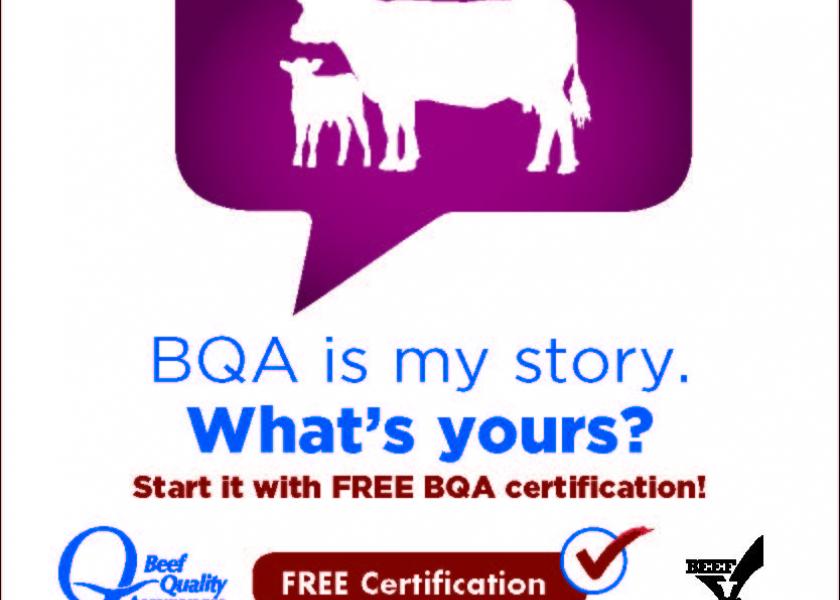Free Online BQA Certiciation Opportunity Ends November 20th

You still have time to become BQA certified for free via the online certification process.
By: Kristine Ely, University of Wisconsin Extension
As demand for beef products continues to grow, there is also a growing demand from consumers to know how their food is produced. Voluntary producer participation in programs like Beef Quality Assurance can help producers tell their story, reflect a positive image, and raise consumer confidence within the beef industry. The importance of Beef Quality Assurance certification lies in the understanding of the title. Quality is a standard of excellence and is obtained by striving to continually reach that high standard. Assurance is defined as a promise; a promise that is intended for the consumers. Therefore, beef cattle farmers and ranchers who invest in Beef Quality Assurance certification are making a promise to the consumer to provide a superior product. A direct quote from the Beef Quality Assurance Manual reads “Remember, the consumer signs the paycheck, they purchase what they trust and their trust and confidence is the basis of our industry’s future, and our children’s future”. Quality beef production is the responsibility of cattleman everywhere and at every level of production.
Beef Quality Assurance (BQA) certification is a nationally run program that is administered through local organizations, including land grant universities, state beef councils, and state cattle associations, depending on your state. This allows states to tailor individual programs that fit with the types of beef cattle production specific to their individual state. BQA is not a government program and participation in BQA is not mandatory. Producers who voluntarily invest in BQA themselves can help demonstrate less need for additional strict government regulations.
Beef Quality Assurance is an educational training/ certification program for cattle producers, veterinarians, and anyone else that is involved in the beef industry. The program provides guidelines and management practices for beef cattle producers. Guidelines are set by the Joint Producer Education Committee, and continually updated for the latest in scientific advancements and best management recommendations. BQA is based on good management production practices coupled with scientific knowledge. For example, damage to muscle can cause long lasting negative effects; therefore, covering topics such as proper injection site technique can reduce carcass damage, which can lead to an increase in profit to the producer.
BQA training can be completed one of two ways. Producers can go online and complete the National BQA Training modules with specific focus on what their ranch or farm needs, or they can take an in person class offered by one of several certified trainers around their state. Both forms of training include completion of the certification test, and a modest fee. Through November 20th,2015, online BQA is being offered for free by a sponsorship program from Boehringer Ingelheim Vetmedica, Inc. BQA certification is valid for 3 years. In Wisconsin, producers can maintain certification by submitting 3 hours of continuing education credits at renewal time, which can be obtained by attending approved educational programs, or by going through the certification program again.
Many producers have embraced BQA, not only because they feel it is the right thing, but also because they have seen an increase in profits. If you are interested in learning more or finding a certified trainer near you, contact your local Extension office or visit www.bqa.org. Make a statement, become Beef Quality Assurance certified today.







